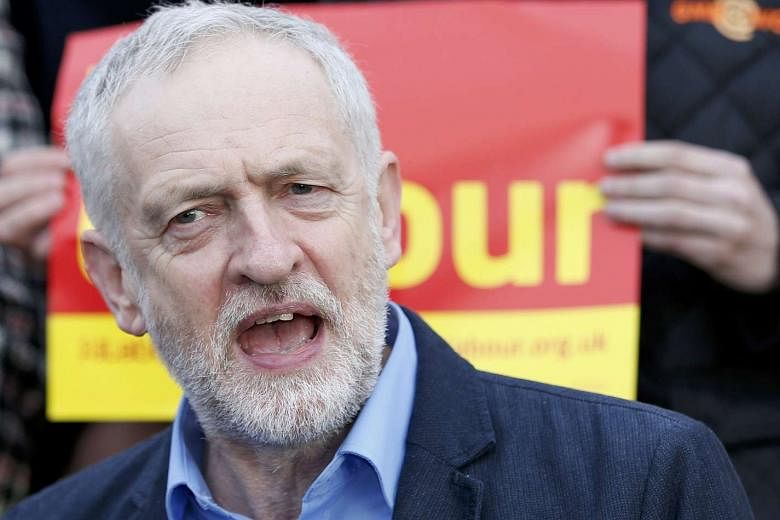LONDON • After such a wretched defeat at the last general election, Labour chose not to move towards the centre but further to the left, electing party outsider Jeremy Corbyn, an anti-war and anti-nuclear campaigner, to lead it. Mr Corbyn had previously distinguished himself by violating (or ignoring) Labour Party voting discipline more than 500 times in over 30 years in Parliament.
Now Mr Corbyn is trying to reshape the party in his own ideological image and struggling to impose party discipline on legislators, many of whom regard him as an accidental leader who is driving Labour into a cul-de-sac.
Another figure of the hard left, Mr John McDonnell, now the Labour spokesman on economic issues, has urged a wider purge of Labour's shadow Cabinet - the people who would be ministers if the party were in power. Labour legislators who oppose Mr Corbyn, he has said, are "the new fringe" in Labour politics.
But are they? They were, after all, elected by voters. Mr McDonnell argues that Mr Corbyn's mandate should not be questioned, since it comes from party members and supporters. But Mr Joe Haines, press secretary during the Labour government of former prime minister Harold Wilson, disagrees.
"It is the Parliamentary Labour Party that represents the Labour vote in Britain, not the 423,000 people, including the ragbag of 'registered supporters', who voted in the leadership contest," he wrote in The New Statesman.
Mr Corbyn won 251,000 of those votes - about 0.5 per cent of the 46 million Britons registered to vote - and about 2.7 per cent of the nearly 9.35 million who voted Labour in May. "The strength of the party lies in the nine-million-odd, not the 251,000, and that figure will be dissipated at our peril," Mr Haines wrote.
But as Mr James Stafford noted in "The Corbyn experiment", an article in the magazine, Dissent, party membership "has surged by some 180,000 this year, to an estimated 370,000", almost the total of all other British parties combined.
Clearly Mr Corbyn's policies and his criticism of inequality and spending cuts are resonating with young people, especially in the bigger cities. Mr Corbyn intends to offer Britons a clear choice, but it is one that most political analysts, like Mr Haines, believe voters will reject.
NEW YORK TIMES

